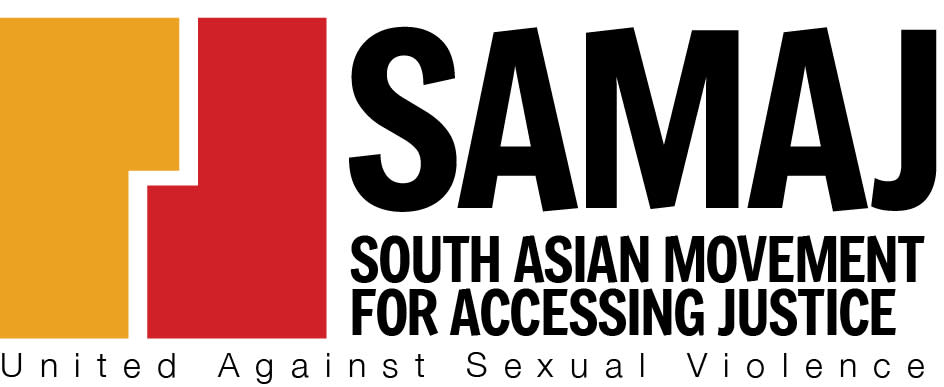SAMAJ calls for collective action against sexual violence in South Asia


KATHMANDU, Nepal, July 9, 2024–(BUSINESS WIRE)–A new coalition of seventeen civil society organizations is calling on South Asian countries to take immediate action to address high rates of sexual violence and low conviction rates. The South Asian Movement for Accessing Justice (SAMAJ) is calling for comprehensive legal reforms to close gaps in sexual violence protection laws, address deficiencies in the criminal justice system, and invest in holistic support services for survivors. These reforms are critical to providing better protection for women and girls and ending widespread impunity for perpetrators.
Many sexual violence laws in the region suffer from inadequate legal definitions that do not cover the full spectrum of sexual violence. Some criminal laws contain provisions that discriminate against women and girls, and poor enforcement of the laws further contributes to abuse going unpunished.
The establishment of SAMAJ represents a significant step forward in addressing serious weaknesses in legal frameworks, policies and practices that prevent survivors of sexual violence and the families of victims from receiving justice and assistance.
SAMAJ, a coalition of human rights organizations and individuals working in Bangladesh, India, the Maldives, Nepal and Sri Lanka, is calling for the adoption of a cross-sectoral approach that involves close collaboration between government agencies, law enforcement, health and education providers, and civil society organizations.
In order to better support survivors in the immediate and long term and to carry out the necessary ongoing prevention efforts to combat the causes and consequences of sexual violence, adequately funded, multi-layered strategies need to be developed and effectively implemented.
Victims of sexual violence face many challenges
Although there has been some progress in strengthening legal protections against sexual violence, survivors still face significant obstacles in reporting to the police and seeking prosecution. Problems include long delays in criminal investigations and trials, high evidentiary standards for trials, the admission of evidence about victims’ sexual past by the courts, and difficulties in obtaining legal aid. These challenges are exacerbated by widespread gender discrimination, victim blaming, and social stigma surrounding sexual violence.
Women from marginalised communities, including indigenous peoples, lower castes and persons with disabilities, are particularly vulnerable. They experience severe intersectional forms of discrimination based on gender, class, caste, disability and religion, which expose them to higher levels of human rights violations and limit their opportunities to escape harm and seek justice.
Currently, the journey through the criminal justice system is arduous for most survivors, and a successful outcome is unlikely as conviction rates for sexual crimes are low across South Asia. For members of marginalized groups, the journey is even more difficult.
When perpetrators can evade criminal responsibility, the risk of abuse for women and girls increases, because impunity encourages perpetrators who know they will be unlikely to be held accountable by the state. The few cases that currently come to court tend to involve the most serious crimes, such as when the victim was killed or is a young girl.
Reform of sexual violence laws
SAMAJ highlights the urgent need for stronger laws, gender-sensitive criminal justice systems and supportive policies that prioritise survivor-led solutions and centre the experiences, needs and insights of women and girls.
The unique challenges faced by marginalized groups must be recognized and addressed, and their voices must be made heard to break down systemic barriers and create inclusive pathways to justice for all, regardless of their background.
To achieve the best possible outcomes in cases of sexual violence, comprehensive legal and procedural reforms must be implemented to close gaps in protection, and laws at the national and state levels must be consistent with international human rights standards.
One of SAMAJ’s main concerns is to advocate for states’ full compliance with global conventions and treaties that require the protection of human rights, using international mechanisms and treaty bodies to increase accountability.
SAMAJ advocates for a unified response to sexual violence in South Asia. Sabin Shrestha, Executive Director of the Forum for Women, Law and Development (FWLD) in Nepal, explains: “We have always stood together in our common struggle for justice and equality. The formation of SAMAJ forms a common front against the endemic problem of sexual violence in the region.”
“This partnership demonstrates how deeply rooted we are in the idea of safe communities and empowered victims. Our many voices will grow louder and resonate as one, empowering ourselves, energizing us and creating meaningful change. Our collaboration is a symbol of optimism, resilience and the assurance of a safer world in the future.”
Shyamala Gomez, Executive Director of the Centre for Equality and Justice in Sri Lanka, added: “SAMAJ member organisations have joined forces to pursue a common goal: to work at the international and regional level to strengthen criminal justice systems in our respective countries so that victims of sexual violence receive justice and are held accountable. We must exert pressure on our governments to take concrete measures to achieve this goal.”
Nawmi Naz Chowdhury of Equality Now concludes: “Building on cross-country experiences, SAMAJ will promote, sustain and grow a South Asia-focused, civil society-led regional movement. The coalition will take joint action on evidence-gathering, research and advocacy to reduce legal and structural barriers faced by victims of sexual violence in their journey to justice and to end sexual violence.”
“Linking national-level advocacy with international human rights mechanisms, SAMAJ is a united regional voice and force determined to defend the rights of women and girls to live free from sexual violence and to equal protection under the law.”
View original version on businesswire.com: https://www.businesswire.com/news/home/20240708978366/en/
contacts
Tara Carey
[email protected]
+44 (0)7971556340


